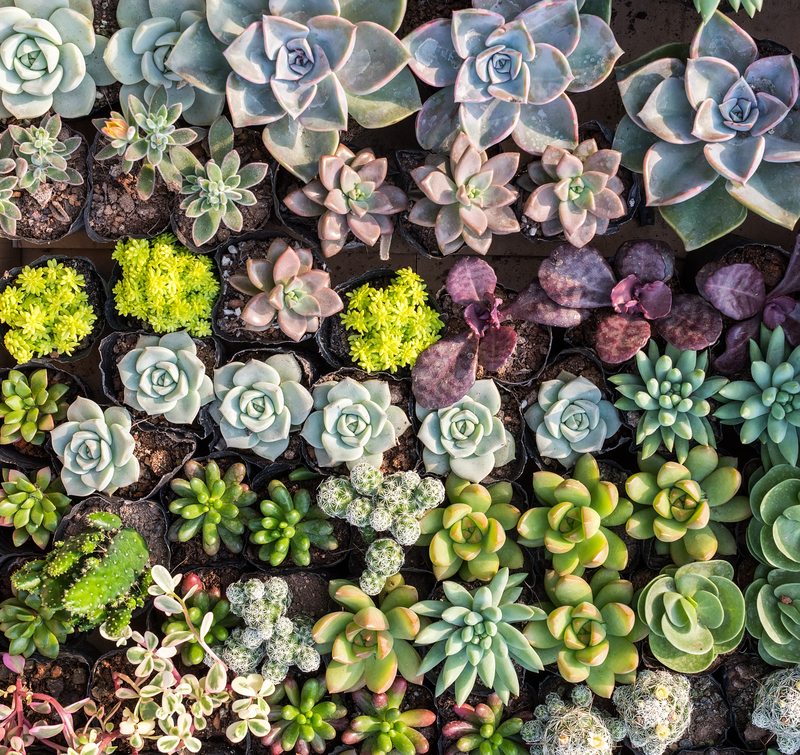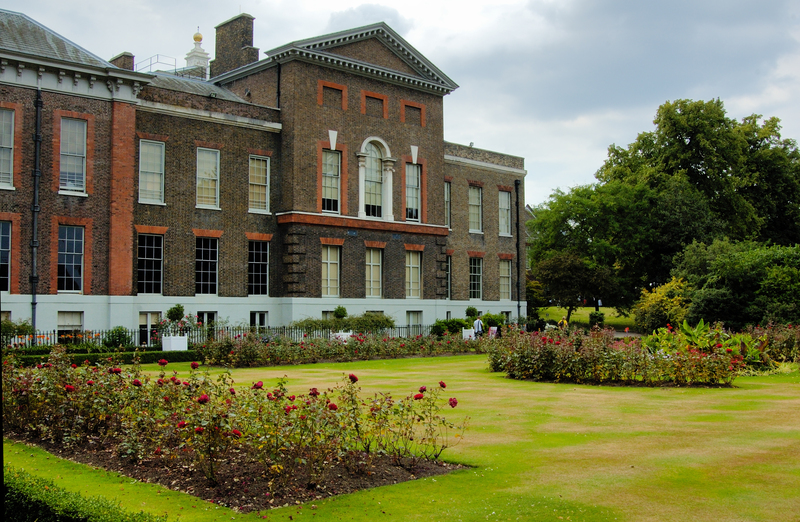Achieving Harmony: Zen Garden Ideas for Your Landscape
Posted on 18/06/2025
In our fast-paced modern world, cultivating spaces that promote peace and balance is more important than ever. Zen gardens--or Japanese rock gardens--offer a timeless method to achieve tranquility and mindfulness in your outdoor landscape. Whether you have a sprawling backyard or a compact urban space, incorporating Zen-inspired elements can turn your environment into a sanctuary of serenity. This comprehensive guide introduces the principles, design ideas, and practical tips to help you achieve harmony with a Zen garden landscape.
Understanding the Essence of Zen Garden Design
Zen gardens aren't just about beautiful sceneries--they encapsulate deep philosophical meanings rooted in Buddhist traditions. Sometimes referred to as karesansui or "dry landscape gardens," these spaces are designed for reflection, meditation, and an appreciation of simplicity.
The Philosophy Behind Zen Landscaping
- Simplicity (Kanso): Removing the unnecessary and showcasing the essential beauty of each element.
- Naturalness (Shizen): Creating a garden that feels organic and uncontrived, even if carefully planned.
- Asymmetry (Fukinsei): Embracing irregularity and the beauty of imbalance to reflect natural landscapes.
- Tranquility (Seijaku): Fostering stillness and peace for contemplation and relaxation.

Core Elements of a Zen Landscape
To achieve harmony, a Zen garden focuses on a few essential components. Thoughtful placement and careful selection are crucial. Here are the key elements to include in your Zen-inspired landscape:
1. Rocks and Gravel
Rocks represent mountains or islands, while gravel or sand symbolizes water or the flow of nature. Use a rake to draw patterns in the gravel, evoking waves or ripples, which enhances the meditative aspect of your space.
2. Water Features
Though traditional Zen gardens may use raked gravel to signify water, many modern landscapes integrate real water features for added tranquility. Consider a small pond, bamboo fountain, or trickling stream for auditory and visual calm.
3. Minimalistic Plantings
Plants play a subtle yet vital role. Choose evergreens, moss, ferns, or ornamental grasses for texture and year-round greenery. Limit flower colors to whites, greens, or soft pinks to maintain a calm, monochrome effect.
4. Pathways
Winding stone paths encourage slow movement and mindful exploration. Irregular stepping stones direct attention to each footstep, promoting presence and mindfulness.
5. Accents and Ornaments
- Bamboo fences - for privacy and structure.
- Stone lanterns (toro) - symbolize spiritual guidance.
- Bridges - mark transitions and change in perspective.
- Benches or meditation platforms - for practicing mindfulness and rest.
Inspiring Zen Garden Ideas for Diverse Landscapes
Now that you know the basics, let's explore actionable Zen garden ideas for your landscape. Whether you have an expansive yard or a modest balcony, these suggestions can be tailored for every space.
Zen Garden Concepts for Large Spaces
- Miniature Landscapes: Design areas that mimic scenes from nature--mountains, rivers, islands--using rocks, gravel, and carefully chosen shrubs.
- Meandering Stone Walkways: Create winding paths bordered by moss and pebbles to foster a sense of journey and discovery.
- Bamboo Groves and Pavilions: Plant taller bamboo in clusters for sound and privacy; add a small wooden pavilion for meditation and tea ceremonies.
- Serene Water Features: Incorporate koi ponds, waterfalls, or reflecting pools, edged with rounded stones and overhung with willows or maples.
Zen Garden Designs for Small Yards and Patios
- Container Zen Gardens: Use shallow bowls or trays filled with sand, stones, and tiny plants to create portable Zen landscapes.
- Pebble Corners: Transform unused nooks into Zenthemed vignettes with a few carefully placed rocks, gravel, and a mossy stone lantern.
- Vertical Zen Elements: Install bamboo screens, wall fountains, or climbing vines for height and visual separation.
- Minimalist Seating: A simple bench or mat invites meditation without clutter.
Indoor Zen Garden Inspirations
- Tabletop Zen Gardens: Accessible and versatile, these miniature sand gardens encouraging raking and creative expression at your desk.
- Moss Terrariums: Glass containers with soft moss, pebbles, and a tiny Buddha statue add a calming focal point to any room.
- Feng Shui Accents: Use indoor fountains or driftwood to evoke balance and movement.
Step-by-Step: How to Create a Zen Garden Landscape
Ready to transform your space? Here's a practical guide for crafting a peaceful Zen-inspired garden landscape:
1. Select Your Site
Assess your available space. Zen gardens can be adapted for large yards, tiny terraces, or even indoor nooks. Choose an area that allows for privacy and some seclusion from distractions.
2. Plan the Layout
Sketch your design, keeping the principles of asymmetry and simplicity in mind. Decide where to place rocks, gravel, and any features like lanterns or benches.
3. Prepare the Ground
- Clear the site of grass, plants or debris.
- Lay down a weed barrier to minimize maintenance.
- Outline the area using edging stones, bamboo, or wood borders.
4. Position Rocks and Larger Elements
Place the larger rocks or boulders first--these form the "mountains" or focal points. Arrange them singly or in clusters, in odd numbers for natural effect.
5. Add Sand or Gravel
Pour in a layer of sand or fine gravel. Use a rake to create swirling or parallel patterns, which can be smoothed or altered depending on your mood.
6. Incorporate Water and Plant Elements
- Integrate a simple fountain, pond, or bamboo piped water spout.
- Plant slow-growing, evergreen species or use moss and groundcovers for lushness.
7. Finalize with Ornaments and Seating
Add a stone lantern, bamboo fence, or meditation bench to complete your scene. Avoid clutter--each ornament should serve a purpose and enhance the atmosphere.
Tips for Maintaining a Zen Landscape Garden
While Zen gardens are known for their low maintenance, they do require periodic care to preserve their harmony and visual appeal. Here are some expert tips for ongoing upkeep:
- Regular Raking: Refresh gravel or sand patterns after wind, rain, or foot traffic.
- Trim Plantings: Prune moss, ferns, and shrubs to keep them neat but natural-looking.
- Clear Debris: Remove leaves and stones regularly to maintain the garden's clean lines.
- Check Structures: Repair fences, lanterns, and pathways as needed, opting for subtle, understated fixes.
- Mindful Watering: If you have added water features or living plants, provide adequate hydration but avoid overwatering.
How to Add Your Own Style to a Zen Garden Landscape
While tradition inspires the core of Zen garden landscaping, modern interpretations allow for creative expression:
- Select unique rocks from local sources to personalize your landscape.
- Use colored gravel or sand for subtle visual interest--soft greys, whites, and tans work best.
- Integrate contemporary sculptures or pottery as focal points, provided they blend with the minimalist theme.
- Mix cultural influences--combine Japanese, Chinese, or Korean elements for a pan-Asian garden feel.
- Light your garden at night with low-voltage LED lights to highlight feature stones, water, or lanterns and to create a nighttime retreat for relaxation.
Eco-Friendly and Sustainable Zen Gardens
Sustainability is increasingly important in landscape design. Here's how to make your Zen space environmentally conscious:
- Choose native plants that thrive in your climate, reducing the need for irrigation and pesticides.
- Opt for local materials--like stones and wood--to lower transportation emissions and costs.
- Install permeable pathways to improve drainage and minimize runoff.
- Incorporate solar lighting for energy conservation.
Benefits of a Zen Garden for Mind, Body, and Spirit
Beyond aesthetics, a Zen garden landscape cultivates holistic well-being. Here's how:
- Reduces Stress: The act of raking, walking, or simply observing your Zen garden lowers cortisol and promotes calm.
- Facilitates Mindfulness: Being in nature, tending to your garden, and meditative practices increase awareness and presence.
- Enhances Creativity: The minimalist beauty of Zen spaces sparks inspiration and mental clarity.
- Provides a Healing Retreat: Your Zen landscape becomes a gentle refuge from digital overload and daily pressures.

Conclusion: Achieving Harmony Through Zen Garden Design
Embracing the art of Zen landscaping allows you to turn any outdoor (or indoor) space into an oasis of harmony, reflection, and beauty. By following the principles of simplicity, naturalness, and mindful arrangement, you can create a powerful sanctuary that rejuvenates your mind, body, and soul. Whether you adopt traditional Japanese features or customize your garden with modern twists, the path to tranquility begins with intentional, mindful design.
Ready to start your own Zen garden? Begin with small steps: select a space, gather materials, and allow your intuition to guide the process. Over time, your Zen-inspired landscape will grow into a living embodiment of peace--an eternal source of calm in a busy world.
Frequently Asked Questions: Zen Garden Ideas for Your Landscape
What is the main purpose of a Zen garden?
A Zen garden is designed primarily for meditation, contemplation, and fostering tranquility through natural, minimalistic beauty.
Can I make a Zen garden in a small yard?
Absolutely! Many small Zen garden ideas can be adapted for balconies, patios, or tiny backyards using containers, pebbles, and compact pathways.
What plants are best for a Zen landscape?
Opt for evergreens, moss, ferns, ornamental grasses, or minimalist shrubs. Avoid bright blooms for a consistent, peaceful palette.
Are Zen gardens high maintenance?
No, they require relatively low maintenance--mainly raking, occasional pruning, and basic cleanliness.
Can I combine Zen elements with other garden styles?
Yes, Zen gardens blend beautifully with modern, cottage, or even desert landscapes--as long as you preserve the core ideals of harmony and simplicity.
Transform your outdoor haven by embracing Zen garden harmony--and rediscover peace in your everyday landscape.
Latest Posts
Unlock the potential of potted plants through container gardening
Creating a Wind-Resilient Garden Environment
Kickstart Your Gardening Journey with These 9 Vital Tips

